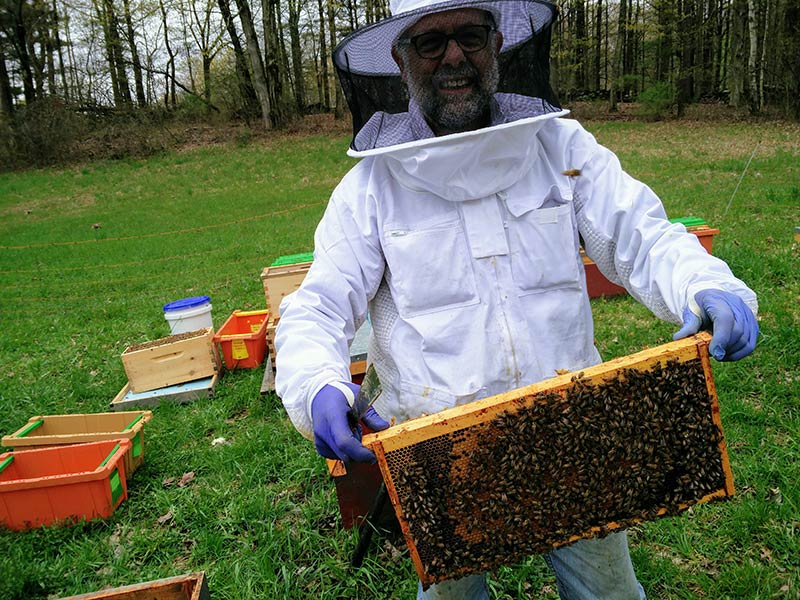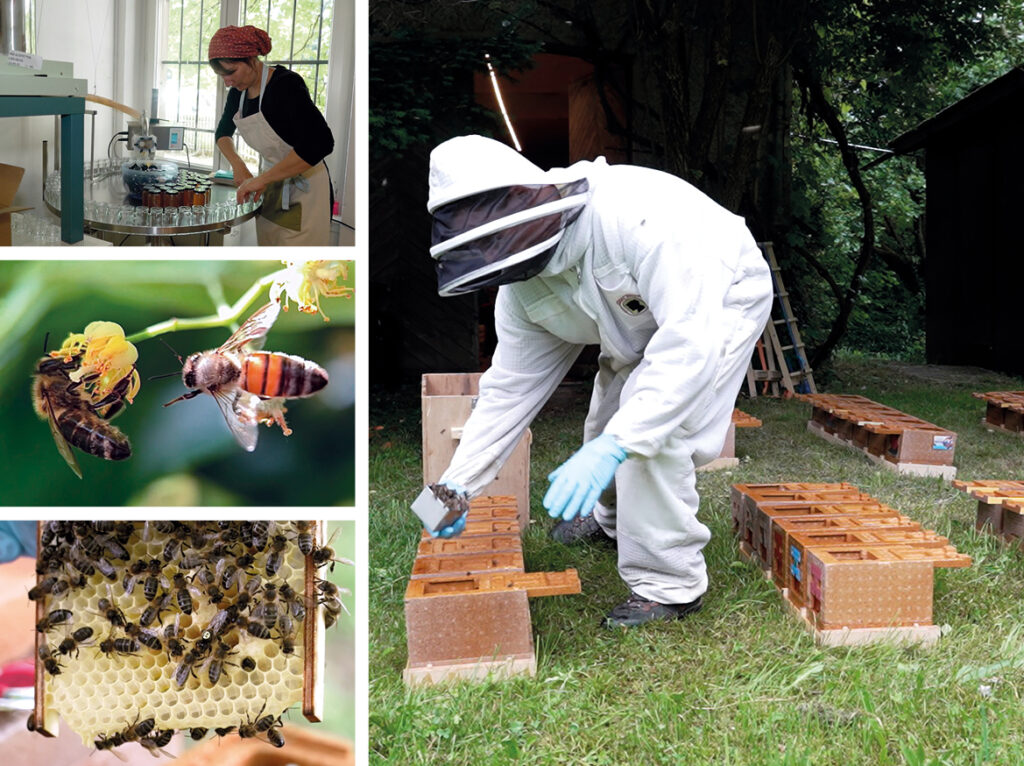As part of the World Bee Day celebrations, the Forum for Natural Regeneration (FONAR) has urged farmers, communities, and stakeholders to take action in protecting these endangered species, which play a vital role in the agricultural ecosystem.
In an interview with the Vaultz News regarding this year’s observance, FONAR Executive Director Sumaila Saaka highlighted the crucial role bees play in crop pollination—a natural process that significantly contributes to increased food production over time.
“There are several insects that are used for pollination of crops, but the most important you know pollinator of crops in nature is actually the bee. The bee is the major crop pollinator or insect pollinator.
“Globally it has been recognize that if we really want to sustain agriculture production and particularly in the case of Ghana, if you take our major cash crop like, cashew, cocoa and then coffee and then you know our major horticulture crops like, you know watermelon, tomatoes and all the other vegetables, they are all major bee pollinators and so we need to look at it from that perspective.”
Sumaila Saaka
World Bee Day was established by the United Nations to raise awareness about the vital role bees play in the agricultural value chain and to encourage efforts to protect these essential insects within society.

Mr. Sumaila Saaka noted that the bee population has declined significantly in recent years—a trend that is alarming given their critical importance to crop and vegetable production.
He stressed the need for intentional efforts from farmers, stakeholders, and the government to safeguard these endangered pollinators.
Human Activities, Agrochemicals Drive Decline in Bee Population
Focusing on the causes of this decline, Mr. Sumaila Saaka stated that human activities have played a major role in the reduction of the bee population.
He emphasized that much of this harm stems from ignorance, underlining the urgency to intensify education and awareness campaigns among farmers who, often unknowingly, contribute to the loss of bee populations.

He further explained that the use of certain agrochemicals poses a serious threat to bee survival. These chemicals compromise bees’ ability to pollinate crops, thereby affecting overall yields and threatening food security.
Mr. Saaka urged agricultural stakeholders to guide farmers on the appropriate use and quantity of fertilizers required for their farms at specific times. This, he said, is crucial to preventing further harm to bee populations.
“And so for us as an organization, Forum for Natural Regeneration, we work with communities to help them restore degraded lands using the Farmer Managed Natural Regeneration plan.”
Sumaila Saaka
He pointed out that the organization is also collaborating with communities in the Nabdam District of the Upper East Region to implement various livelihood initiatives. Among these is the promotion of beekeeping.
However, it has become apparent that many farmers in these areas are now using agrochemicals in their farming practices. These chemicals are negatively impacting the bees that play a crucial role in pollination and could otherwise be used for beekeeping to produce honey and enhance the community’s livelihoods.
Farmers Urged to Protect Bees Beyond Honey Harvesting
Meanwhile, Mr. Sumaila Saaka observed that when discussions around beekeeping in Ghana arise, many people—farmers included—often overlook the critical role bees play as crop pollinators. Instead, the focus tends to be solely on the honey that can be harvested.
He stressed that farmers should not only value the honey but also recognize the broader agricultural benefits bees provide, particularly their role in enhancing crop yields.

The widespread lack of awareness among stakeholders highlights the urgent need for intensified education on the vital contributions bees make to both agriculture and human life.
On what society should be doing to protect bees, Mr. Saaka acknowledged the power of communication in spreading awareness.
He called on journalists and the Ministry of Agriculture to strengthen the capacity of their regional and district offices so they can better educate farmers. This includes guidance on the appropriate use of fertilizers to prevent harm to bee populations and safeguard their pollination functions.
This year’s World Bee Day is celebrated under the theme, “Bee Inspired by Nature to Nourish Us All,” a reminder of the essential role bees play in sustaining life on Earth.
READ ALSO: Atlantic Lithium Discovers High-Grade Spodumene Pegmatite in Côte d’Ivoire




















